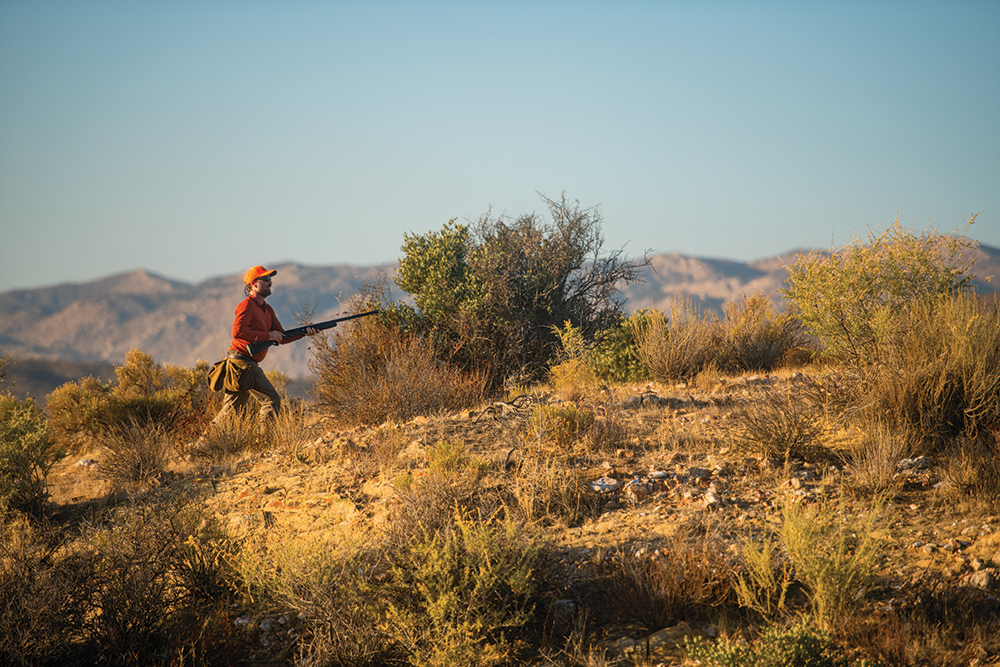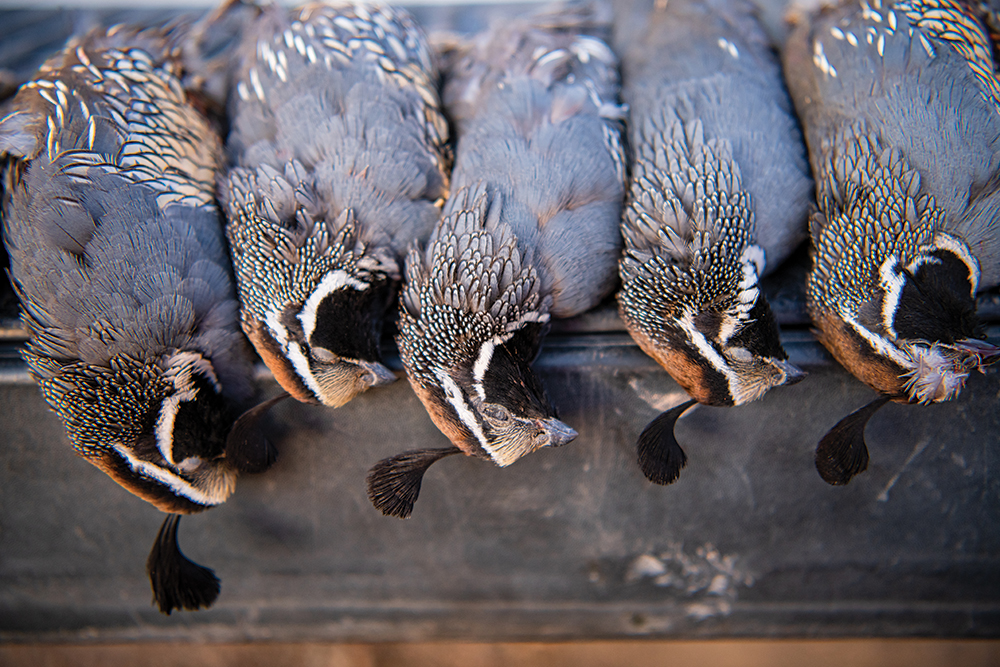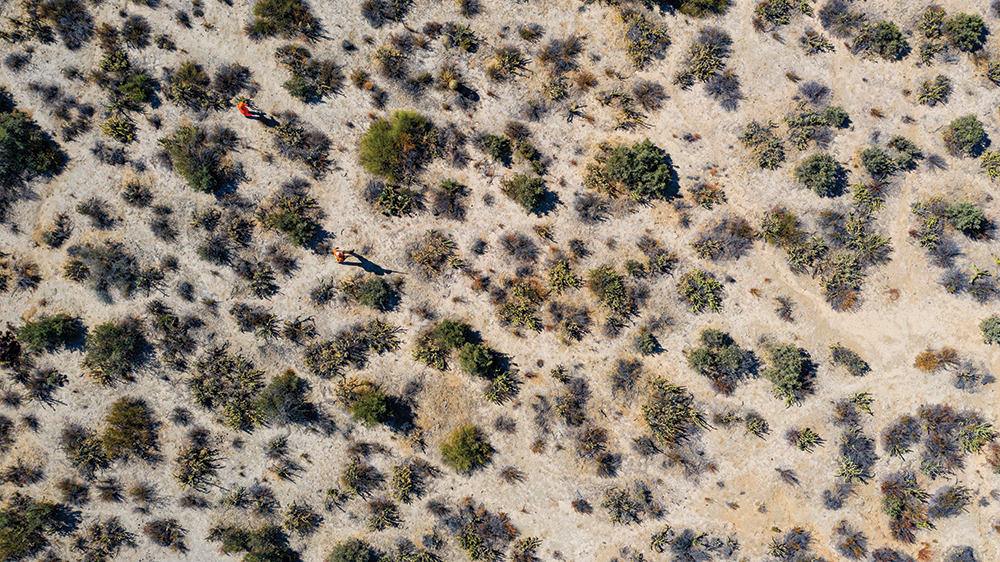Best is Yet to Come

Once upon a time there were five college kids in Lubbock, Texas, with a taste for adventure and no real idea what life had in store. They didn’t think much about the future, and it didn’t weigh on them. The present held all that they wanted in spades. There was money enough for shotshells and beer, and more miles to wander in any direction than they could possibly make good on. And, of course, there were birds to chase. Their appetite for doing so just never seemed to quit.
It’s tough to say whether they knew how good they had it back then. People will tell you that youth is wasted on the young, that those unfettered days are the best of all, though their value is often overlooked. There is, I suppose, some substance there. But what can be truly appreciated without the benefit of context? Doesn’t time give us each a point of reference, a longer view? Maybe this is what we trade: the weight that comes with growing older for the wisdom that it brings.
Those five college buddies grew up but never lost each other. They never stopped wandering around in good country, and their appetite for birds never diminished. With years, however, they accumulated some experience and those inherent points of reference. They learned as men to appreciate the nuance. Together and separate, they walked enough miles to see that indeed, those days in Lubbock were great, and the memory of them was something to be told and retold, to be cherished. But with a little gray around the temples, those boys also saw bright days shimmering in the nearer past, days just as good, if not better. Each step forward into new country gave them faith in all the days to come, providing five college buddies the hope and possibility of miles and moments not yet traveled, miles and moments of surprise and delight.

They converged at the Austin airport in late winter of 2020 and set off for Ensenada, Mexico. They weren’t kids anymore, but the old crew was together again: Seiders and Dyess and Ryan Street and the Kristynik boys, Cash and Eric. They were grownups now but no less aware of what they liked and where to find it. Their pal Art Malo of Baja Hunting had called a few weeks prior and indicated good omens: some alignment of the sun and moon and stars that had conjured from the Baja desert more quail than he had seen in his 35 years of outfitting. This season would become the stuff of legend, or so said Malo, and he was not one to peddle in empty promises.
In adulthood, the vehicles and pathways of the boys’ adventures had elevated, but the spirit was the same. They boarded the plane, poured a round of Bloody Marys, and plunged into a Mexican winter. In the air and sunlight about the desert, they settled into a good thing unfolding—five college buddies with a story still being written and a promise of birds in the scrub desert far below. The lure of Mexico is its very uncertainty. There’s a sense of shifting sands down there that make it a bit more thrilling than what lies closer to home. The flavors pop and the sun glints brighter, and the tang and spice linger on the tongue. Mexico can make you a little bit nervous, and a little bit amazed. At the Torre Lucerna Hotel, the boys settled into their rooms and looked out over the sweeping blue of All Saint’s Bay, and amazement tipped the scales. The trip was finding its rhythm, and it was coaxing them along. They could feel good fortune soaking into them like sunshine.
They called a car and made the quick trip up into the wine country of the Valle de Guadalupe. There they met up with Malo at a vineyard where the table was laid for a grand welcome. The descent into a seven-course lunch was so easy that it made whatever hunting might follow nearly irrelevant, and they ate with the appetite of college boys, but with a bit more appreciation. The flavors of the desert, beautiful Malbecs and chiles and limes, the laughing hum of Spanish, lengthening shadows off the ridges—these things danced around them as they ate and drank, retelling their stories, new and old. They were unabashed about their optimism. After that first big meal, they found it hard to get moving, but there were rumors of quail in non-typical numbers through the valley, oh-so-near at hand. They heaved themselves up from the table, stretched and yawned and laced their boots, setting off to find what wonder the hillsides held, and hopefully a few of those skittery birds.
That first afternoon, Malo surprised even himself, turning the boys onto birds the way he did. How many birds in the first big covey? A few hundred, more or less? Valley quail seemed to rise in waves, more than enough to shake off the dullness of travel and a long lunch and wine. It was a thing to see: five old friends spread across those hillsides in a skirmish line, guns popping and Malo’s bird boys laughing, quail tumbling intermittently into the dust. How the miles slipped away, leaving the group to settle into a fading afternoon and a certainty about Mexico—and the luck they’d somehow found there. It seemed impossible that hunting the Valle de Guadalupe was really just a lark that Malo had wanted to try, and that the real bird numbers were yet to be seen in the broken desert of the Ojos Negros to the south. Game bags were heavy, and hearts were full as the they shook off the dust and emptied their guns, sitting down for a tailgate beer. The sun was setting. The earth reflected the day’s heat as the crew loaded up the vehicles and set off deeper into an evening that was not yet spent.

The day that followed was the meat of the trip, a full day in the raw land just south and east of Ensenada. The morning dawned bright and clear and glittering, as Mexico days are wont to do, and over the short drive, the brush and rangeland of the Ojos Negros opened and spread its arms. It was a land unchanged for hundreds of years, a vast scrubland vaguely familiar, but seemingly untouched by the heavy hand of hard use or agriculture. The horses and cattle and occasional ranchers that occupied the roadsides were the descendants of those that had wandered that ground in the 1700s, those whose footsteps had crisscrossed the Camino Real, pushing waves of quail into flight even then. It felt as though they were tripping back in time, if only metaphorically, approaching a subtle lesson.
Malo pulled his truck off to the side of the track. As the group unloaded their gear and loaded the guns, the tail end of the first covey shimmied away into the brush. They remembered that quickening feeling that never seemed to age, the way they felt as college kids, excited to be out with pals in a day’s beginning, hopeful for birds in rough country. They savored the anticipation a bit more as men, aware now that anticipation and pleasure are twined. They closed their guns and started off, each happy at the feeling in their hearts and the easy swing of their footsteps. The weight of a gun in hand was just as clean and stirring as it was a half-lifetime ago.
And oh, did they find quail that day. It must have been thousands, certainly enough that there was never a concern that the coveys would run out, or the misses could not be made up for. There was a confidence in that easy abundance that made them shoot better and see a little more. They found themselves running, skirting the sidehills and yucca, Malo’s Lab slipping in and out of the cover, pushing up birds and collecting a few here and there. It was fast but not furious, and they took the time to look around, to watch their friends as they made their shots, or to realize that in their chase, the group had broken up and spread a bit, taking separate paths to a collective end. At points, each man found himself alone and quiet just long enough to appreciate where he was and why. There were echoes of shots and muffled shouts of “bueno!” from the bird boys, laughter chuckling through the brush. There was the high thin whistle of quail. They covered the miles and regrouped at the trucks and did it all again, driving deeper into that country to find fresh coveys under a different piece of sky. And then it was lunchtime, and none too soon.
They took that midday meal at the property of a cheesemaker that Malo knew, who’d opened his place and his cellars especially for the group. Again, there was wine and a table set in the shade on a piece of lush grass. They were given a tour of the cheese cellars and tasted some of the wares. The meal that followed was another festival, so vibrant with the heat and smoke of the cookfire that they found it hard to stop. Somewhere among the courses, perhaps 40 fresh quail were delivered to the table, each one a delicate taste of the landscape, a simple gift of the desert’s flesh. They ate and drank and laughed and let themselves feel the miles in their legs. Shady places in the grass beckoned, and several grown men took comfort in a snooze. The afternoon would come in due course, and with it more birds and more miles, but for the moment, a nap in the shade was sublime.

The remains of that day followed suit, as did the next morning. The hours slipped past, and the boys realized increasingly what a great trip it had become. Perhaps with age, and the perspective it brings, they’d become capable of stopping when things were still perfect, and there were still birds up ahead, and more of them wouldn’t serve to make a wonderful thing any better. At some point, a last bird tumbled into the dust south of Ensenada, and they knew it was time to be done. They loaded the trucks for the ride back to town, and all the while Malo’s eyes were shining, as if even he could not believe the good fortune they’d shared.
The end of a trip is a delicate time in many ways. There comes the sense of something slowly closing, and there can be a temptation to punctuate the experience with a forced grand gesture, one that invariably falls short. More often, a fellow finds himself slipping inadvertently into the conscience of the world back home. There are emails to check and voicemails to attend to, bags to pack and gather, realities that tug you out of the place you are, and into the place you are going. Seiders and Dyess and Ryan Street and the Kristynik boys navigated the end well. They loaded up and headed to the airport, all the while wanting, but not commanding, a last taste of the place, a bookend, something to keep them anchored in the shared experience. There was no deliberate intention to stop for a last great meal, but it so happened that on their route to the airport there was a fabled taco stand called Mariscos La Guerrerense. What better place to knit the final threads of their time in Mexico together, and leave them filled to brimming.
The driver dropped them off, and Dyess gave him some cash and a request for cold beers. A tired and dusty group of college buddies, a little gray around the temples, sidled up to the taco counter and decided to lay it all down. They’d beaten the lunch rush, and the small kitchen lurched into motion. They ordered one of everything, or so it seemed. Knives flashed as the cooks leaned over the onions and the oyster shells, the cilantro, and the limes. A rough kitchen on the streets of Ensenada managed to blend all the tastes of the Pacific and the Baja countryside into little heaps of magic, each one a fiesta of brine and acid and heat. What emerged was perhaps the most remarkable lunch any of them had ever seen: plates overflowing with ceviche and octopus, clam cocktails in plastic cups, brimming dishes of fresh pico and avocado slices. Somehow the driver, laden with cold beer bottles, found them in the crowd, and they sat quite happily, eating with their hands in the sunshine. It was the perfect end to a perfect trip, and each of them knew it. To say they were happy doesn’t touch it.
The boys left Ensenada with full hearts and bellies, tired and satisfied, nothing left behind. They boarded the plane and lifted into an easterly sky, the taste of Mexico still on their tongues. And they knew, to a man, that they’d seen perfection take shape, and it made them happy, and it gave them hope. And perhaps some of that happiness, that pure and unadulterated joy, came from knowing that even as one perfect adventure comes to pass, tomorrow holds all the promise of another. Five college buddies from Lubbock, their story still being written.
Originally published in Volume 9, Number 1 (Dec-Jan 2021) of Covey Rise.
























